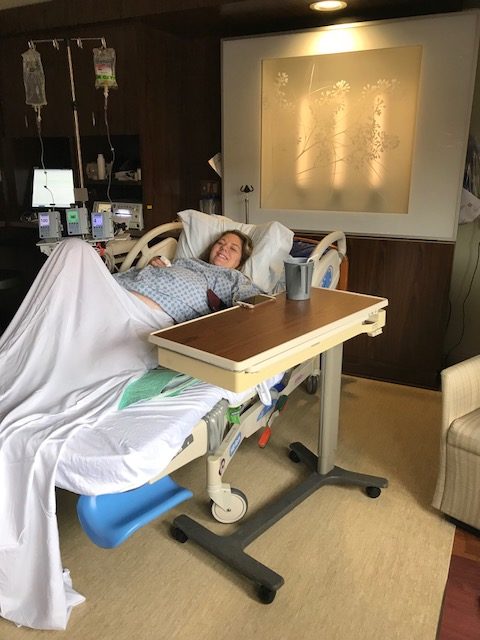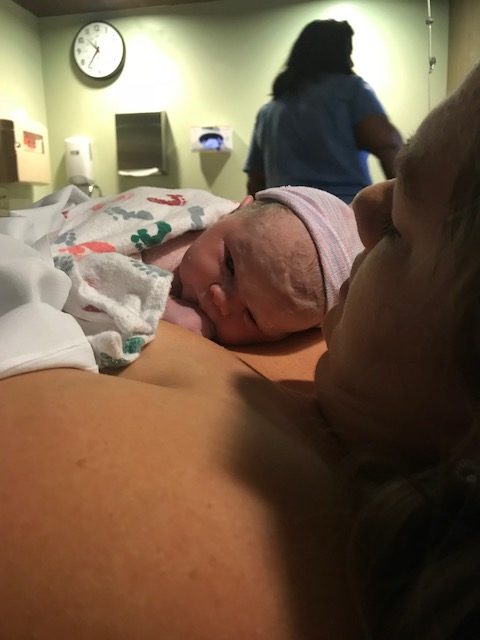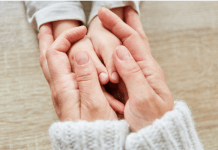I was exactly three weeks away from my due date with my third baby when I came upon an article in my newsfeed entitled, “Deadly Deliveries” by USA Today. As one would imagine this probably wouldn’t be the ideal reading material for an expecting mama ready to pop, but I clicked anyway.
As I read I learned that the United States is the most dangerous place in the developed world to give birth. Currently it is more dangerous to give birth here than in Turkey, Iran and Libya, because the World Health Organization (WHO) found that their maternal mortality rates are lower than ours. The Center for Disease Control (CDC) current data shows nearly 700 woman a year die from childbirth complications in the US, and another 50,000 suffer serious complications.

How could this be? Women have been giving birth since the beginning of time. Women give birth everyday and no one ever talks about or considers the dangers the mother faces. And surely no one would think that they were at an even greater risk delivering here in our own country.

I know my safety really wasn’t at the forefront of my mind when I was preparing to deliver my first baby. My focus was head down, push through, and meet my baby girl, not allowing my mind to wonder into the what-ifs. But truth is, I am one of the statistics the “Deadly Deliveries” article cited. I am one of the 50,000 woman who suffered serious complication. As I read through the article it triggered me. to recollect on my childbirth experience and the late postpartum hemorrhage I experienced a week after my daughter was born. I don’t think about that time often, but reading the article left rehashing my entire experience.
My first baby was 10lbs! Yes, no joke. I’ll never forget the look on the doctor’s face as I was starting to push and he said, “well she’s a lot bigger than we were expecting”, and that we were beyond the point of considering a c-section. She made her way out successfully and everyone was relieved. We did however find ourselves admitted to the NICU because her bilirubin was too high. As a brand new mom, I couldn’t fathom leaving my baby alone in the hospital, and I stayed by her side 24/7. I slept in an uncomfortable hospital chair, my feet swelled up and my shoes didn’t fit. I surely wasn’t getting enough sleep, wasn’t eating or drinking enough, and was not taking things easy. But no one, especially me, was considering what my body needed to heal, our baby girl was the primary focus.

On our 4th night in the NICU, I started bleeding, and bleeding and bleeding. I called my OB from the NICU, and they said to watch it and if it didn’t let up go to the ER. Thankfully, since I was already at a hospital the ER was close by. In my gut, I knew I needed to go and so I went. In the hustle and bustle of the ER I felt like just a number. They went through the typical checklist of reasons I could have been bleeding, did an ultrasound, and wanted to send me home. “Well ma’am, we know this is your first baby, but it is normal to have some bleeding following delivery” the doctor said. I felt stupid, I felt exhausted, I felt drained, and I just wanted to get back to my baby. It wasn’t until the discharge nurse came in to help me get ready to go home, that someone finally realized how seriously ill I was.
As I relive that night in my head I thank god for that nurse. By the time she assessed me I needed emergency surgery and I had lost so much blood I almost needed a blood transfusion. To think, had she not intervened I would have gone home in such a condition and who knows what would have happened then.
I bring this article, and this topic to light not to scare anyone, but to bring awareness. Though maternal death and complications are still rare, there have continued to be an increase in them over the past 25 years. Organizations such as the March of Dimes and the American Academy of Obstetrics and Gynecology are currently performing research to determine the reasons for the rise. We can all focus on putting more emphasis on the mother’s safety during delivery and postpartum.














